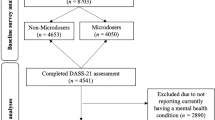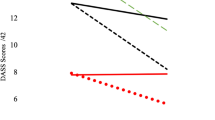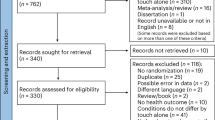Abstract
Objectives Attachment style has been shown to influence patient engagement in medical settings but has been little explored in dentistry. The aim of our study was to identify whether there was a link between patients with insecure attachment styles and dental attendance and anxiety.
Methods A survey was circulated and completed by 317 participants on social media. Respondents completed the revised Adult Attachment Scale and questions about the timing of their last dental visit, anxiety levels and the perceived reasons for these.
Results Participants classed as having a secure attachment were most likely to have attended a dental appointment in the last two years (87%) and least likely to report dental anxiety (25%). Participants in the fearful attachment group had the highest levels of dental anxiety (75%) and lowest rates of attendance (63%). Both anxious attachment traits (M2.68, 2.09, z = 4.09; p <0.001) and avoidant attachment traits (M2.81, 2.51, z = -2.94; p <0.01) were associated with reduced dental attendance in the past two years. Common themes surrounding visiting the dentist included: unpleasant emotional experiences, previous psychological trauma and inaccurate beliefs about dentistry, resulting in mistrust.
Conclusion Attachment styles are related to dental anxiety and attendance. Understanding the role of attachment in service planning and education of dentists could improve the care of patients.
Key points
-
Highlights how psychological attachment style has been shown in medicine to influence engagement with healthcare services, psychological wellbeing and types of health behaviours performed by different individuals.
-
Explores whether psychological attachment style can influence self-reported dental anxiety and attendance and has found that there may be an association between these phenomena. In particular, anxious and avoidant attachment traits were associated with worse dental attendance. A fearful attachment style was associated with higher levels of dental anxiety and poorer dental attendance.
-
Proposes further research could be conducted in this field of study to improve communication skills training, service planning and the patient experience.
This is a preview of subscription content, access via your institution
Access options
Subscribe to this journal
Receive 24 print issues and online access
$259.00 per year
only $10.79 per issue
Buy this article
- Purchase on Springer Link
- Instant access to full article PDF
Prices may be subject to local taxes which are calculated during checkout
Similar content being viewed by others
References
Cohen S M, Fiske J, Newton J T. The impact of dental anxiety on daily living. Br Dent J 2000; 189: 385-390.
Humphris G M, Dyer T A, Robinson P G. The modified dental anxiety scale: UK general public population norms in 2008 with further psychometrics and effects of age. BMC Oral Health 2009; 9: 20.
Muirhead V E, Marcenes W, Wright D. Do health provider-patient relationships matter? Exploring dentist-patient relationships and oral health-related quality of life in older people. Age Ageing 2014; 43: 399-405.
Armfield J M, Ketting M, Chrisopoulos S, Baker R. Do people trust dentists? Development of the Dentist Trust Scale. Aust Dent J 2017; 62: 355-362.
Bowlby J. Attachment and Loss, Vol 1: Attachment. 1st ed. New York: Basic Books, 1969.
Bartholomew K, Horowitz L M. Attachment styles among young adults: a test of a four-category model. J Pers Soc Psychol 1991; 61: 226-244.
Consedine N S, Fiori K L, Tuck N L, Merz E-M. Attachment, activity limitation, and health symptoms in later life: the mediating roles of negative (and positive) affect. J Aging Health 2013; 25: 56-79.
Graetz C, Ehrenthal J C, Senf D, Semar K, Herzog W, Dörfer C E. Influence of psychological attachment patterns on periodontal disease - a pilot study with 310 compliant patients. J Clin Periodontol 2013; 40: 1087-1094.
Hooper L M, Tomek S, Roter D, Carson K A, Mugoya G, Cooper L A. Depression, patient characteristics, and attachment style: correlates and mediators of medication treatment adherence in a racially diverse primary care sample. Prim Health Care Res Dev 2016; 17: 184-197.
Palmer Kelly E, Tsilimigras D I, Hyer J M, Pawlik T M. Understanding the use of attachment theory applied to the patient-provider relationship in cancer care: Recommendations for future research and clinical practice. Surg Oncol 2019; 31: 101-110.
Graetz C, Woeste S, Mrowietz U, Ehrenthal J C. The impact of psychological attachment on the relationship between periodontal health and dental fear in patients with versus without psoriasis: a questionnaire-based, cross-sectional study. BMC Oral Health 2021; 21: 95.
Pietromonaco P R, Beck L A. Adult attachment and physical health. Curr Opin Psychol 2019; 25: 115-120.
Brenk-Franz K, Strauss B, Tiesler F et al. The Influence of Adult Attachment on Patient Self-Management in Primary Care - The Need for a Personalized Approach and Patient-Centred Care. PLoS One 2015; DOI: 10.1371/journal.pone.0136723.
Van der Zande M M, Exley C, Wilson S A, Harris R V. Disentangling a web of causation: An ethnographic study of interlinked patient barriers to planned dental visiting, and strategies to overcome them. Community Dent Oral Epidemiol 2021; 49: 144-157.
Collins N L. Working models of attachment: Implications for explanation, emotion, and behaviour. J Pers Soc Psychol 1996; 71: 810-832.
Graham J M, Unterschute M S. A reliability generalization meta-analysis of self-report measures of adult attachment. J Pers Assess 2015; 97: 31-41.
Shahid M, Shum J H, Tadakamadla S K, Kroon J, Peres M A. Theoretical evidence explaining the relationship between socio-demographic and psychosocial barriers on access to oral health care among adults: A scoping review. J Dent 2021; DOI: 10.1016/j.jdent.2021.103606.
Heidari E, Banerjee A, Newton T. Survey of treatment policies under conscious sedation at centres dealing with people with high levels of dental anxiety across the United Kingdom. Br Dent J 2018; 224: 632-636.
Collins. Revised Adult Attachment Scale. 2008. Available at https://labs.psych.ucsb.edu/collins/nancy/UCSB_Close_Relationships_Lab/Resources_files/Adult%20Attachment%20Scale.doc (accessed May 2022).
Ciechanowski P, Russo J, Katon W et al. Where is the patient? The association of psychosocial factors and missed primary care appointments in patients with diabetes. Gen Hosp Psychiatry 2006; 28: 9-17.
Fredriksen T V, Søftestad S, Kranstad V, Willumsen T. Preparing for attack and recovering from battle: Understanding child sexual abuse survivors' experiences of dental treatment. Community Dent Oral Epidemiol 2020; 48: 317-327.
Chapman H R, Kirby-Turner N. Psychological Intrusion - An Overlooked Aspect of Dental Fear. Front Psychol 2018; 9: 501.
MacEntee M I, Mathu-Muju K R. Confronting dental uncertainty in old age. Gerodontology 2014; DOI: 10.1111/ger.12109.
Neverlien P O. Assessment of a single-item dental anxiety question. Acta Odontol Scand 1990; 48: 365-369.
Author information
Authors and Affiliations
Contributions
Anna Beaven: data analysis, interpretation, writing the paper and revising the paper. Pam Boullin: concept and design of the study and data acquisition. Chris Penlington: conception and design of the study, performing statistical analysis and revising the paper.
Corresponding author
Ethics declarations
All authors have given their consent for this study to be published. There are no conflicts of interests. This study had ethical approval from Newcastle University. Details of all participants were anonymised during the process of data collection.
Supplementary Information
Rights and permissions
About this article
Cite this article
Beaven, A., Boullin, P. & Penlington, C. Do psychological attachment styles influence dental anxiety and dental attendance?. Br Dent J (2022). https://doi.org/10.1038/s41415-022-4353-0
Received:
Accepted:
Published:
DOI: https://doi.org/10.1038/s41415-022-4353-0
This article is cited by
-
Periodontal maintenance: individual patient responses and discontinuations
BMC Oral Health (2022)
-
Maternal dental anxiety
British Dental Journal (2022)



